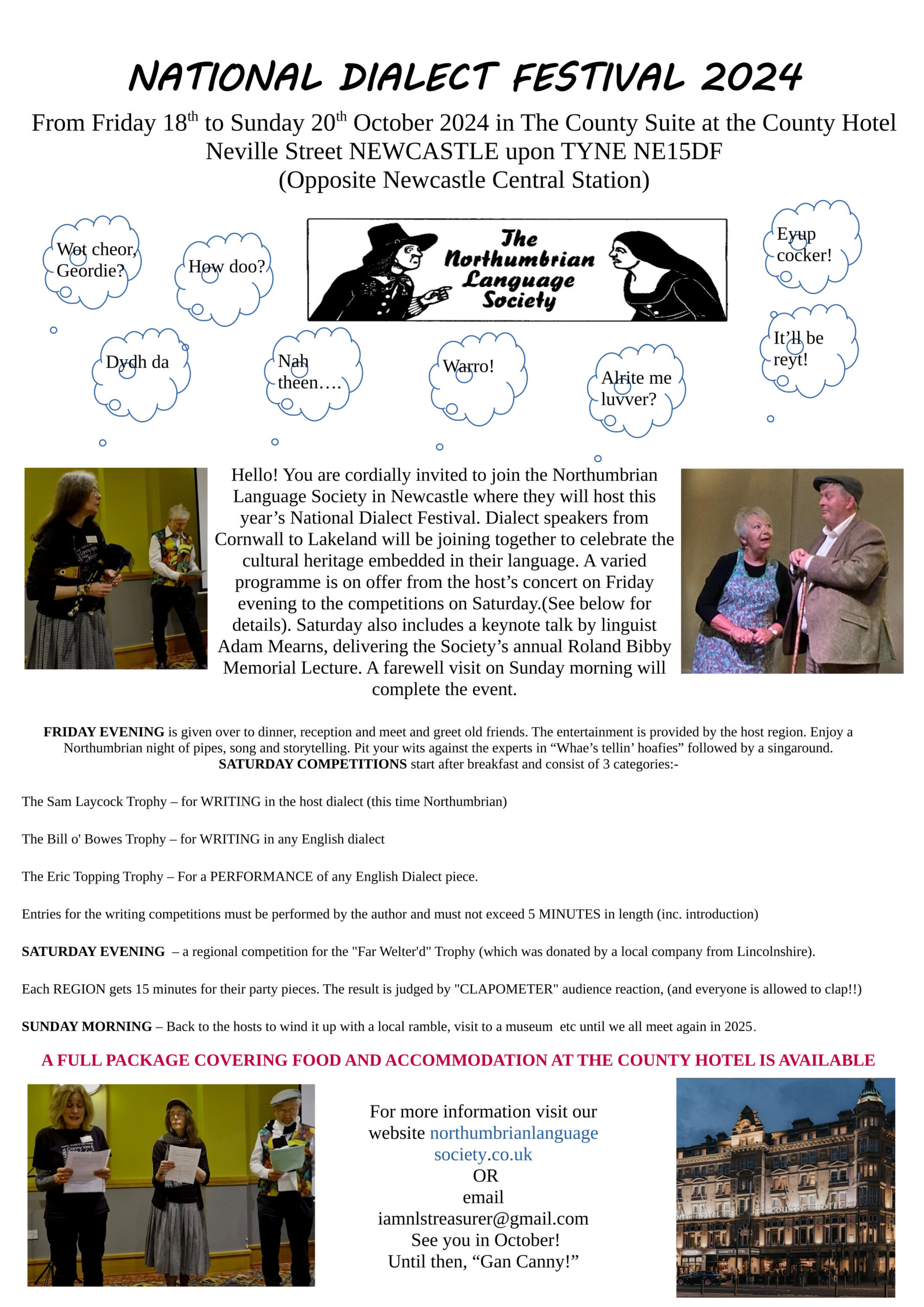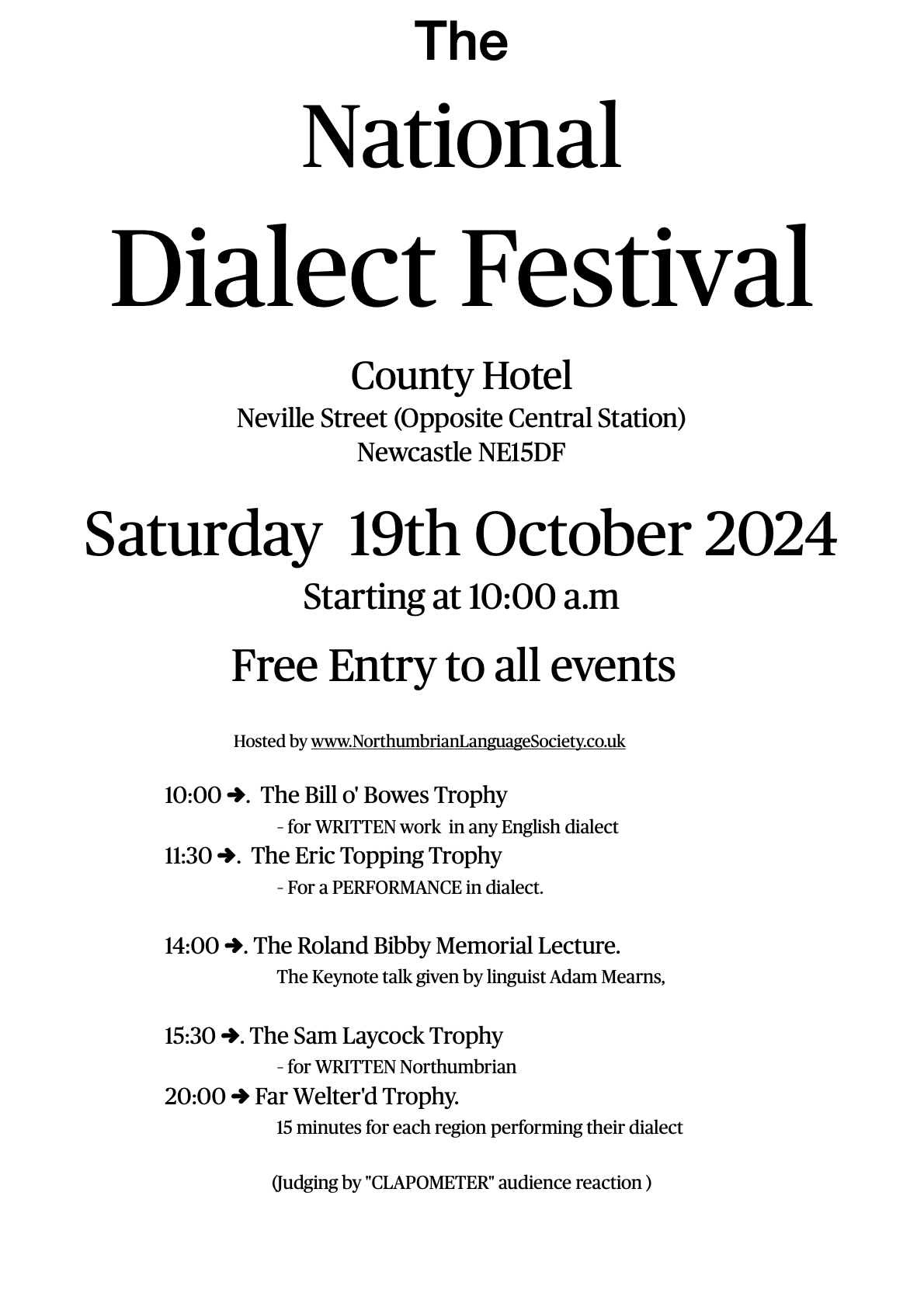It is not all doom and gloom however. Enthusiasts like the Northumbrian Language Society exist to preserve our unique regional dialect, and to encourage all Northumbrians to become bilingual, using the language amongst family and friends, and using standard English in more public situations. It is also the case that as society becomes more like a “global village”, more people are turning to the distinct cultural and historical features of their local communities in order to establish an identity that gives them a sense of belonging and value that is often absent in their public lives.
The Northumbrian language is uniquely placed to contribute to this trend. It has an unbroken history stretching back more than fourteen hundred years. Although its use has declined in recent years, it nevertheless has a long and vigorous literary tradition, both oral and written, which preserves its essential features. It forms the basis of our regional culture and heritage, and when linked to our own unique musical instrument, the Northumbrian smallpipes, provides a powerful and effective means of transmitting the culture to successive generations.
When these facts are added to the many other forms of regional life which mark us out as different, it is no surprise to learn that the calls for regional government in England are strongest in the north east. The history of our region has marked us out as unique, and we are determined, through our language, to retain this uniqueness far into the future.
What do you think? Use the comments below to send us your view on how our language, dialect, and accent are doing.
To help us maintain our unique language, why not join the society? The Society offers Individual Subscriptions, Joint Subscriptions, and provides a concessionary rate subscription. Full details in the shop.
Click here to go to the shop and purchase a subscription.
Not wanting to subscribe?
If you would nevertheless like us to keep in touch, we also have a mailing list. A couple of times a year we mail with some dialect, and news of recent events. You can sign up here.



Hello. My grandparents were from England, and both had distinctive accents, which they kept all their lives. I’ve been trying to work out which region their accents come from. I’d been led to believe they both came from somewhere in London as small children. But I can’t find a London accent that matches theirs. Also, my Father mentioned several times my Grandpa being born in Peterborough. It was his excuse why we had (apparently) mistaken our heritage as including Scottish. I’m not sure if that’s sensible, but it’s what he said. I believed it, because Grandpa always sounded a bit Scottish in my memory (all of these people are long dead). The nearest I’ve been able to find to my Grandma’s accent is Vera from the television show – that’s Northumbrian,, I believe? I’d be grateful if you would direct me to any information that could help me figure out this mystery. I’d dearly love to solve it.
Thanks for your question.
Peterborough is probably a difficult accent to define, lying where it does, and London, of course, has a range of accents, as does Northumbrian.
We should distinguish between accent and dialect. Dialects are words which differ between areas. In Northubrian we may say you have asked a muckle question, meaning large, big, and that would be dialect. I could use the same words in a variety of accents, which would place me in Downton Abbey, Norfolk, Cumbria, or Northumberland. Vera’s accent is unlike anything north of Sheffield, as Brenda Blethyn, the actress, is trying to sound something she is not (She makes a fair fist of it)
So our problem is in locating the sound of your grandparents. There are audio files on this website, and you will find audio files on other dialect society’s sites which you could listen to and see which is the best match. I should warn you that to a perceptive ear, accents differ between villages only 20 miles apart, and the accent in North Northumbria are vastly different to those in Newcastle in the south, or those south of the river Tyne. But I suggest you start with audio.
And if you come to any conclusions, please contact us again.